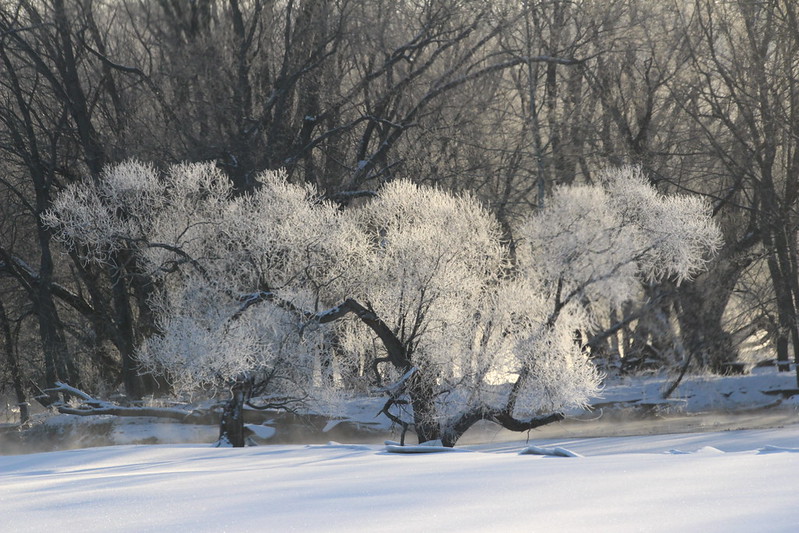By Jeff Tome
It is important to be present. This is a saying that I hear a lot in my life. It seems like such a simple thing, to be present, but it is more complicated than just showing up. Your body can be present, but your mind absent. The mind wanders off on its own, dreaming impossible dreams, worrying, or picking away at problems that need to be untangled like a complicated knot. It can be hard to be present.
I see this a lot in people who walk outside. They come to the trails to be refreshed, but walk along lost in their heads. People walk past deer that are standing just feet away from them on the trail, or walk swiftly through a sea of green while texting or talking on their phone, never noticing the flowers at their feet or the birds in the trees.
Have you ever walked or driven while thinking deeply, then suddenly realize that you have been on autopilot for the last several minutes? That happens to me. It happens a lot. I find it especially easy to get lost in my head.

There is always something that I am thinking about, whether it is what to plant in the garden, how to fix the plumbing, how to get the car running, or thinking ahead to plan some Audubon event. How can I make this Audubon Lights fun and new? Where can I hide dragon nests at the Dragon and Fairy Festival? Who else can bake a pie for the pie auction? My head is a maze of thoughts that crowd out the present moment. It’s a tangled mess in there, really.
I have a new partner to help me stay in the present moment: my dog. It’s impossible to walk with her and get lost in thought. She stops to sniff, scratch, go to the bathroom, sniff again or watch the neighbors go about their lives. When I get lost in the morasses and mazes of my brain, she comes to an abrupt and unexpected stop that is normal for her, but surprising for me. It’s like having an anchor tied around my wrist that randomly brings me back to the present moment.
That present moment is important, and many people find peace and the present moment in nature. You can probably think of a time when you were stressed and went for a walk, run or bike ride. Perhaps you just sat outside and watched the world go by for a while. Nature relieves stress. In a world full of electronics and noise, that is important.
Studies show that this is true. According to the American Psychological Association, exposure to nature has been linked to a host of benefits, including improved attention, lower stress, better mood, and better empathy and cooperation.
According to Lisa Nisbet, a psychologist in Ontario, Canada, “You can boost your mood just by walking in nature, even in urban nature. And the sense of connection you have with the natural world seems to contribute to happiness even when you’re not physically immersed in nature.”
I feel that now, as I struggle to write my thoughts down and stare out the window. It is warm outside, or at least warm-ish, and Big Pond is covered with a low blanket of fog. The scene exudes peace, and that peace settles deep into my body.

Perhaps that is where I should end this article: with a deep breath, a foggy morning and peace. I hope, very deeply, that you can find your own peace outside today. Find a spot to watch outside, go for a walk, or find a friend to meander with if you are more of an extrovert. Time spent watching and walking outside is good for your mental health and your physical health. Find time to be present outside this week.
Jeff Tome is Public Engagement Specialist at Audubon.
Audubon Community Nature Center builds and nurtures connections between people and nature. ACNC is located just east of Route 62 between Warren and Jamestown. The trails are open from dawn to dusk and birds of prey can be viewed anytime the trails are open. The Nature Center is open from 10 a.m. until 4:30 p.m. daily except Sunday when it opens at 1 p.m. More information is online at auduboncnc.org or by calling (716) 569-2345.


Recent Comments